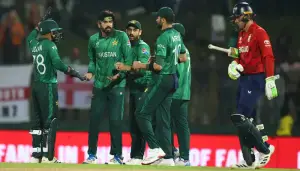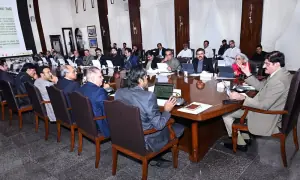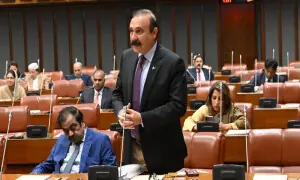Cyber resilience: How to protect and recover from online blackmail?
2 min readLast year, cybercrime complaints soared to over 100,000 according to data revealed by the Federal Investigation Agency (FIA), making it essential for Pakistani people to learn how to protect themselves and recover from online blackmail and extortion.
Answering some important questions on cybercrime on Aaj News’ Sehri transmission, ‘Baran E Rehmat,’ on Monday, High Court advocate Alina Naqvi reiterated that FIA’s investigation procedure has now improved as verifications can be obtained more quickly. “The cybercrime law is very useful, and relief is achieved rather swiftly.”
“What is the nature and duration of punishment if a complaint of blackmail is proven against somebody?” asked transmission host Syed Shaharyar Asim.
“There are several different types of cybercrimes. There’s uploading or misuse of pictures on social media, or there’s hacking, so the punishment depends on the nature of the crime,” replied Naqvi.
Speaking about false first investigation reports (FIR) and cases, Naqvi clarified that the police can’t arrest an accused person only on the basis of suspicion. “The law regarding this has been amended, the police need proof of crime before arresting anyone.”
“Unfortunately, in Pakistan people are arrested by the police whether or not a crime has been proven,” added Asim.
“In such a case, the accused has the right to consult the court and challenge the false FIR,” said Naqvi. “The police also get investigated in this way,” she added.
According to FIA, a total of 267 cases of extortion and blackmail were registered in 2021, out of which 185 arrests were made. Thirty two per cent of all the complaints last year, were made by students.
Making defamation cases the topic of conversation, Asim then inquired whether damages in defamation cases are actually ever paid. “I’ve heard people say, I’ve sent a notice to someone worth five crore or 10 crore. Is this money ever paid?” he said.
“You need proof in this situation. If you have that, then yes the amount is paid,” explained Naqvi.
“What if the other party doesn’t have that kind of money? Then what?”
“The court looks at that and decides accordingly,” said Naqvi.
For the latest news, follow us on Twitter @Aaj_Urdu. We are also on Facebook, Instagram and YouTube.
























Comments are closed on this story.